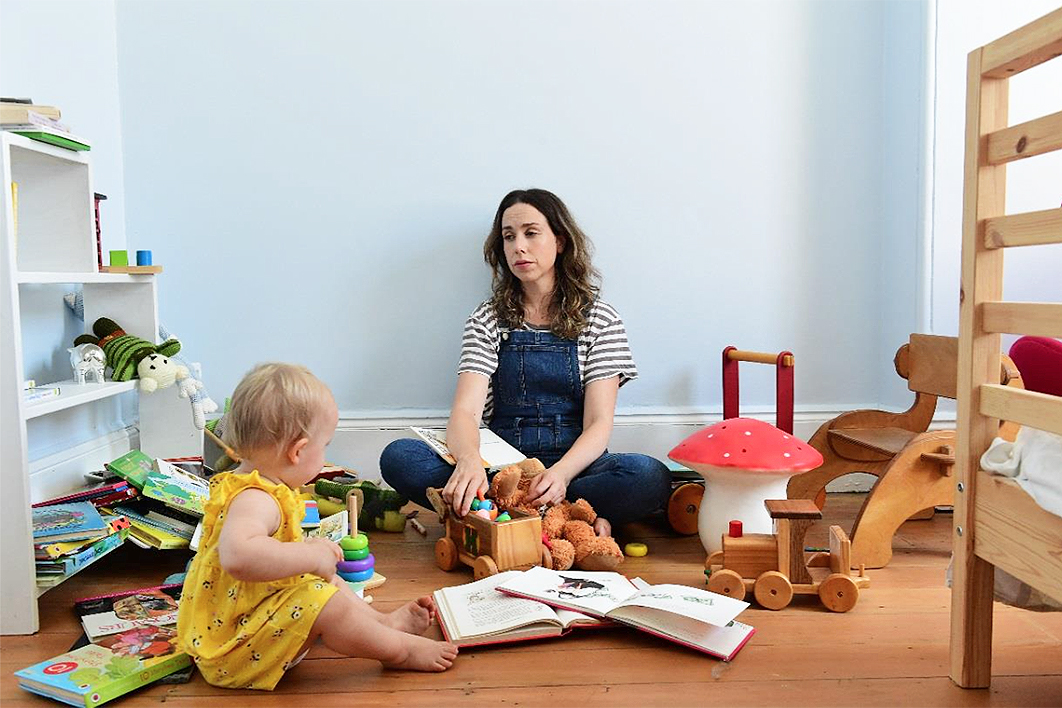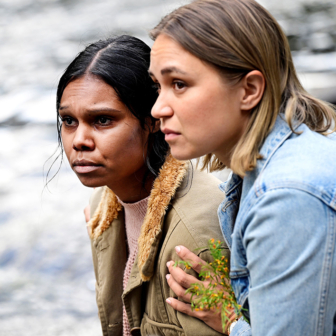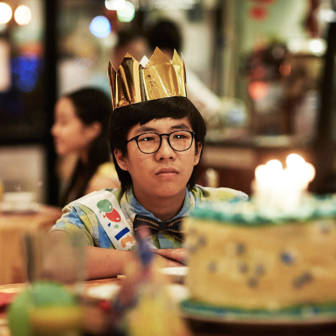It’s true that you can never really know what it’s like to have a newborn until you experience it, but ABC’s brilliant 2017 comedy The Letdown is about as close as it gets. The first season, which won the 2018 AACTA Award for Best TV Comedy, has developed a cult following among new parents, especially since its release on Netflix last year. It follows thirty-something Audrey (co-creator Alison Bell), who joins a child health service parents’ group with her three-month-old daughter Stevie.
The setting is a stroke of genius from co-creators and writers Bell and Sarah Scheller, and the show plumbs these depths magnificently, to the extent that I’ve heard more than one new parent describe their own introduction to parents’ groups as “like walking into the first episode of The Letdown!” Indeed, it’s so realistically depicted, right down to Noni Hazlehurst’s acerbic child health nurse, that at times it feels more like a documentary than a comedy.
I’m exactly in The Letdown’s target market — I binged the first season last year when my daughter was two months old and loved it, and now that she’s closing in on her first birthday I was eager to see what the second season has to say about this new stage.
We pick up the story with Audrey still in Sydney while her partner Jeremy (Duncan Fellows) works in Adelaide, commuting back on weekends. As the babies approach their first birthdays, the parents’ group crew are facing new challenges: looking for childcare, coping with difficult relationships, expecting baby number two. Season two has broadened into an exploration of the family, but while this allows for a wider range of stories it detracts from the universality of experience that struck such a chord with new parents the first time around.
One of the reasons the first season worked so well is that parents’ groups are one of the few remaining places that truly cut across social divides. The only characteristics the participants share are location and the babies’ ages. For the writers, this mix is storytelling gold. Over the course of the first season, much as in a real parents’ group, the parents reveal their nuances and Audrey realises that they are all struggling in their own ways. By the end, the group has achieved a kind of solidarity — not necessarily long-term friendship, but a bond born of shared experience. Even the apparently obnoxious characters, such as the picture-perfect Sophie (Lucy Durack), don’t remain stereotypes. Structurally, the season is tightly bounded, exploring a different secondary character each episode in addition to Audrey’s overarching story.
The second season’s wider focus and looser structure mean that, rather than speaking to a universal experience of parenthood that bridges social barriers, Audrey and her friends are now facing a set of manufactured and decidedly upper-middle-class problems. Fertility is a big theme, and right from the start the season takes a darker turn. Television shouldn’t shy away from discussing difficult issues, of course — abortion and IVF are the big two in this case — but by doing so The Letdown has lost something that made it special. This was one of the only series about babies that new parents felt safe watching.
New parenthood is an emotional rollercoaster, and many, if not most, of the current crop of television shows and movies that deal with it have been taking an unflinching look at the darker sides, such as child loss and mental illness. The Letdown, although not afraid to discuss close-to-home issues like birth trauma and identity crises, did so in a way that was warm, funny and compassionate. It reassured, rather than terrified, new parents. This is bloody hard, it said, but you’re doing just fine. By following the current trend towards grittiness, season two has let that charm slip away, perhaps without realising what it’s lost.
There are still laugh-out-loud moments, such as in the first episode, when Audrey bakes Stevie’s birthday cake from the beloved Women’s Weekly Children’s Birthday Cake Book, with interesting results. Overall, though, the characters have been ramped up to caricature level. Newly pregnant Sophie, for example — a character made human in the first season by her struggles with postpartum incontinence — has become little more than a walking sex joke. Almost all the characters are less likeable, which is a shame, as one of The Letdown’s major strengths was that it portrayed a diverse group of women without descending into the “mummy wars.” This goes out the window in the opening minutes of season two, where we see Audrey panicking about Stevie’s birthday party, and at the party itself the mums give her grief about scheduling it for 10am, which apparently is “everybody’s nap time.” Indeed, the most authentic expression of female friendship in the first two episodes is a scene between Audrey and her pre-baby friend Emma, leaving the viewer wondering why she keeps the parents’ group mums in her life at all.
The one character who undergoes any meaningful development is Jeremy, who’s taken beyond his season one “dopey dad” characterisation and given some complexity as he figures out his role as a partner, father and employee. An especially poignant scene at the end of the first episode lends nuance to a relationship that’s often dysfunctional.
Season two revolves around the question of what happens after the newborn craziness is over. In reality, life gets easier. Leaving the house no longer requires logistics worthy of a military operation, sleep improves, and babies get a lot more interesting once they start interacting with the world. But that doesn’t really make for good television. While moving away from the close-knit structure of the parents’ group has undoubtedly given the writers more creative freedom, The Letdown has essentially become just another light drama series with a few gags thrown in, and it’s the poorer for it. •
The Letdown season two premieres on ABC1 at 9pm on Wednesday 29 May. The full season will also be available on iView and Netflix.
Our regular TV reviewer Jane Goodall returns next month.




